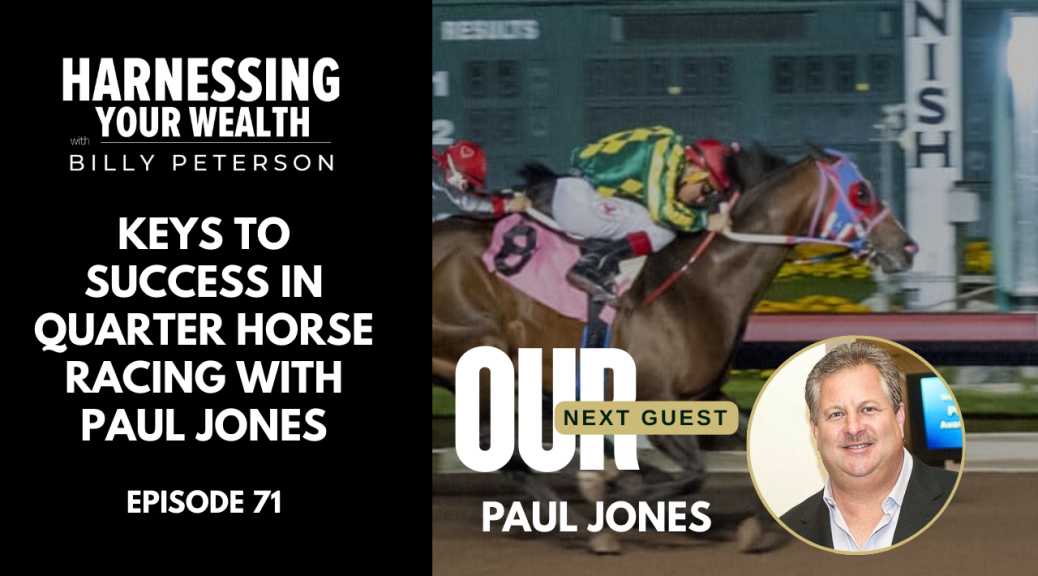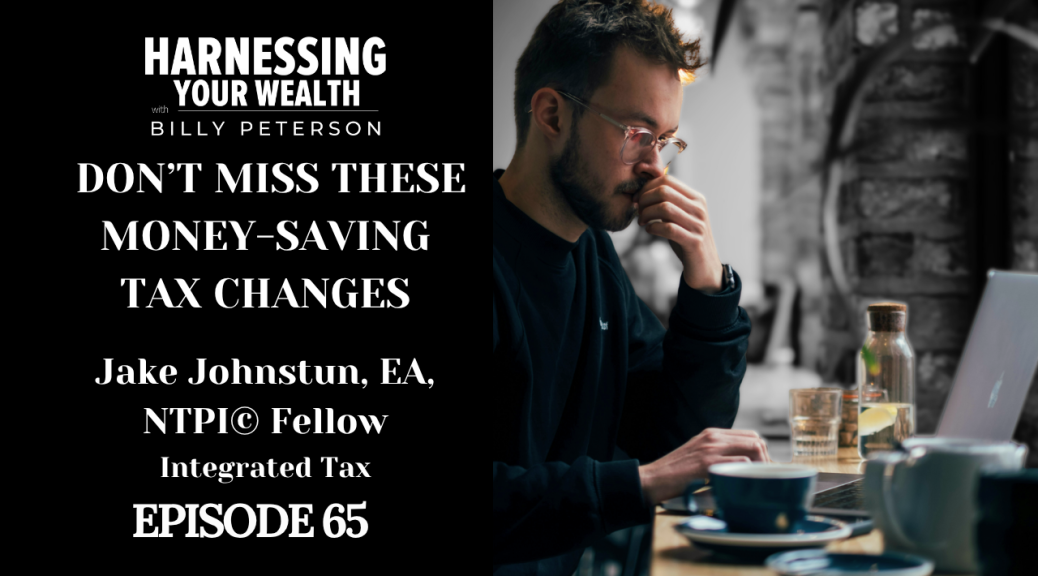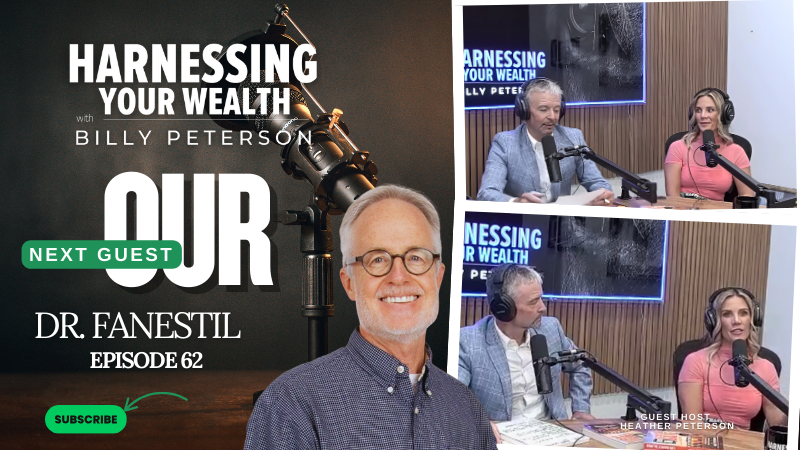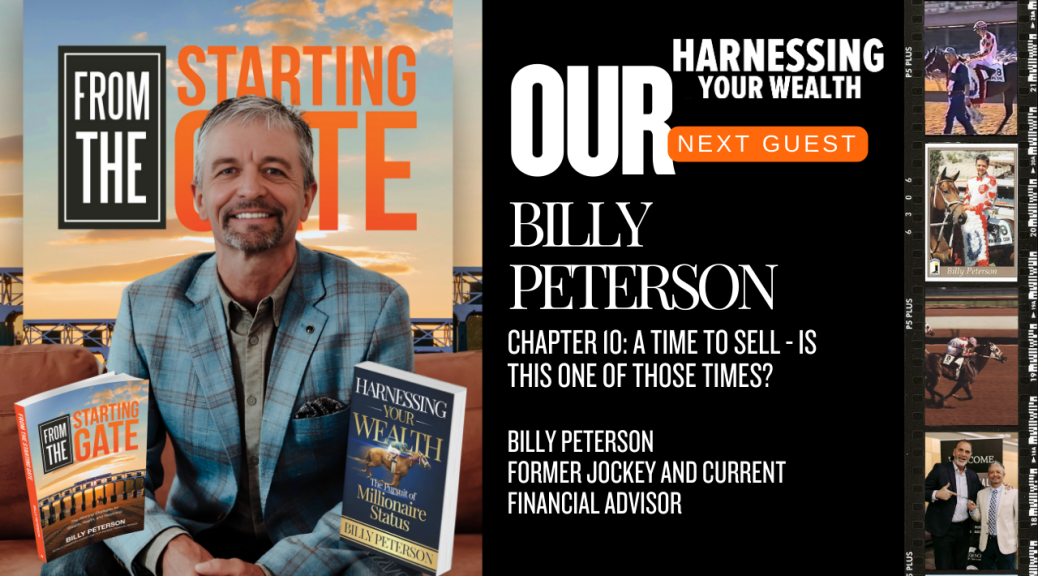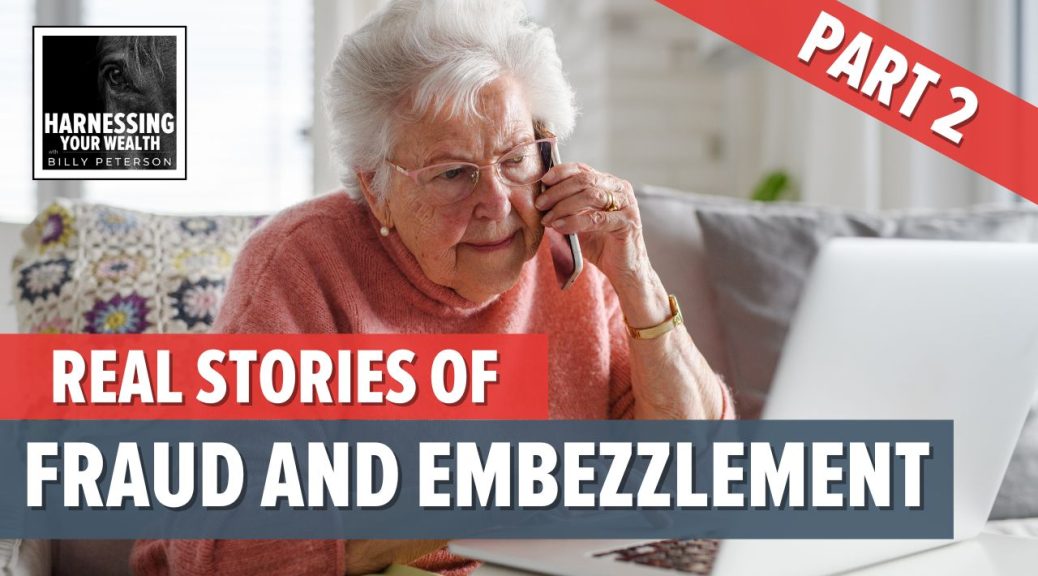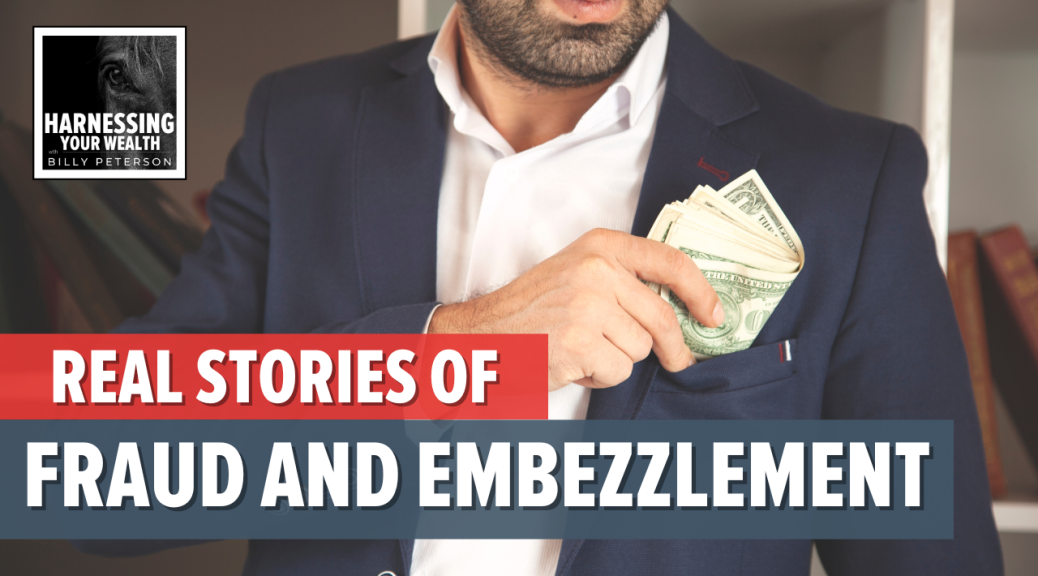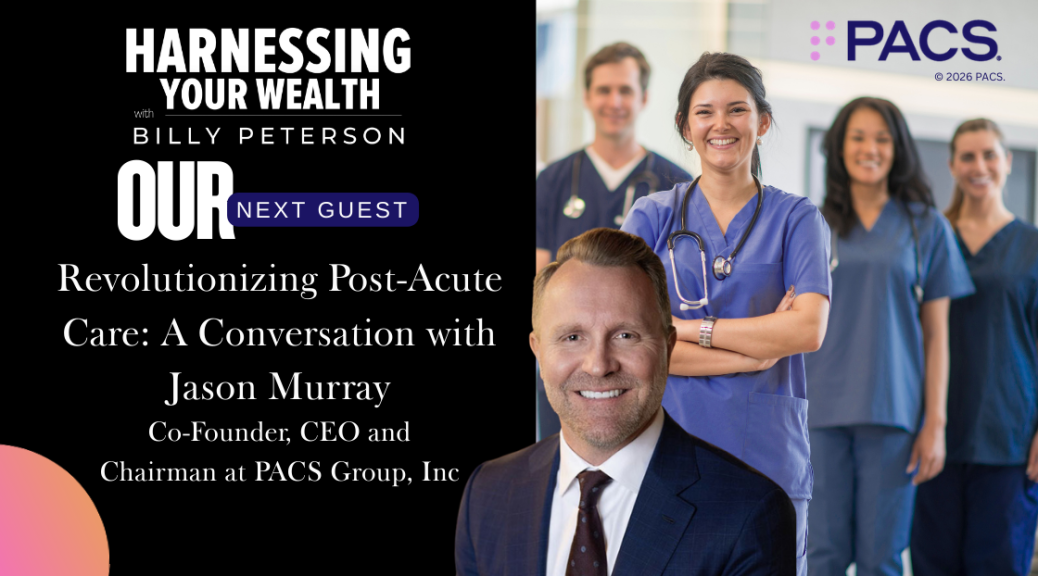
Revolutionizing Post-Acute Care: A Conversation with Jason Murray (EP. 74)
In this episode of Harnessing Your Wealth, host Billy Peterson sits down with Jason Murray, CEO and co-founder of PACS Group, Inc., a leading operator in post-acute and skilled nursing care. The conversation dives into Jason’s entrepreneurial journey and the realities of scaling a company in one of the most highly regulated industries in healthcare. He shares how leadership, culture, and disciplined decision-making have guided PACS’ growth—from evaluating new opportunities to navigating complex regulatory environments. Billy and Jason also explore the strategic thinking behind taking the company public, the lessons learned through rapid expansion, and why maintaining balance between professional ambition and personal life is essential for long-term success.
Takeaways
- Building a strong support structure is crucial for success.
- Relationships become more meaningful as you grow in wealth.
- Starting a business requires a deep understanding of the industry.
- Culture is key to maintaining a successful business.
- Growth should not compromise company values.
- Navigating regulations is a significant challenge in healthcare.
- Expanding services can create a comprehensive care ecosystem.
- And more
Resources:
- The Mind-Body Connection with Heather Peterson of Pain Free For Good (Ep. 15)
- The Emotional Connection to Chronic Pain with Jim Prussack
- The Paradigm Shift in Healthcare with Brad Fanestil, MD (EP. 62)
About Our Guest:
Jason Murray has more than 20 years of experience working as an executive in acute and post-acute healthcare settings and is a licensed nursing home administrator. He is the chief executive officer and one of two founders/owners of PACS Group Inc., a rapidly growing national platform investing in the continuum of post-acute care, including post-acute care professionals, ancillary services, and over 300 post-acute facilities in 17 states across the country. Jason is a Fellow of the American College of Healthcare Executives (FACHE) and holds a master’s degree in healthcare administration. He was named 2023 Mountain West Entrepreneur of the Year by Ernst & Young and was a finalist for their national Entrepreneur of the Year competition that same year.
About PACS:
PACS was founded in 2013 with two skilled nursing facilities. Since the purchase of those initial facilities, the PACS family consists of 323 independent operating subsidiaries across 17 states, as well as ancillary and support services, and continues to bring our model of mission-driven care that balances access to a national network of support and resources with local decision making.
Connect with Billy Peterson:
Connect with Shaun Peterson:
Connect with PACS:
Podcast: Play in new window | Download | Embed
